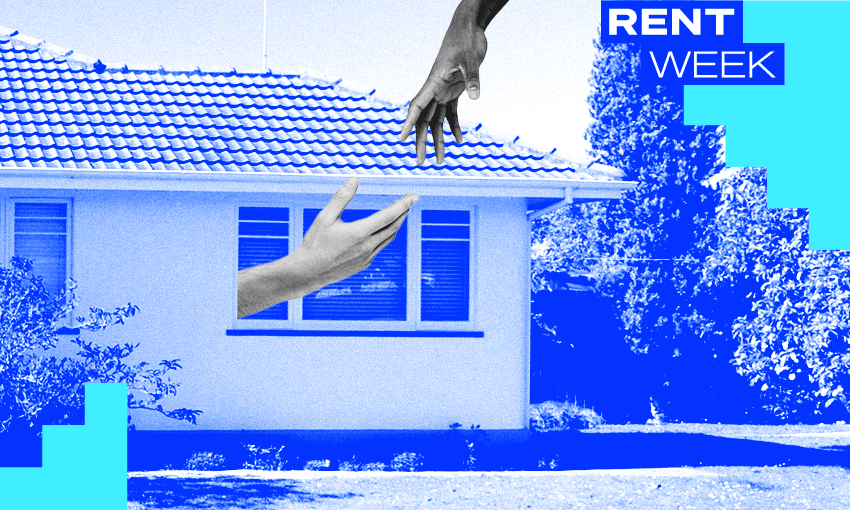The government’s healthy homes standards are meant to raise the quality of over half a million rental properties. But tracking compliance is subpar – and that’s undermining democracy, says the chief human rights commissioner.
Living in a warm, dry and healthy home is as much a human right as the presumption of innocence or freedom of expression, says chief human rights commissioner of New Zealand Paul Hunt. But if there’s no one around to ensure their upkeep, “our democracy has gone wrong … If people are not having their human rights respected, that doesn’t lead to social cohesion – just the opposite … At the moment, we don’t have an accountable right to a decent home.”
That “accountability deficit” is a “democratic deficit”, which could undermine a country ranked the second freest nation in the world in 2021. But Hunt’s alarming words ring true when one accounts for the fact that property is New Zealanders’ primary source of wealth, that the country’s equality schism continues to widen, and that a disparity exists for some 600,000 households living in properties they don’t own: the houses are more likely to be missing basic amenities, to be cold, damp, mouldy and in need of repair. It’s estimated between 30% and 50% of the rental stock is in poor condition. Research shows poor housing conditions are connected to poor health outcomes.
The government’s healthy homes standards are designed to ameliorate the problem. Introduced in July 2019, and amended in May 2022, the regulations aim to make New Zealand’s rental stock drier and warmer, meaning tenants have healthy and decent homes to live in and landlords’ investments are more attractive and better protected in the long-run. The laws achieve this through specific minimum standards set across five aspects of a property: heating, insulation, ventilation, moisture ingress and drainage, and draught stopping.
Since their introduction, landlords have had various dates to comply with the regulations. So far, the two most pertinent deadlines have been from December 1, 2020, where any new or renewed tenancy agreements must contain a statement of the property’s current level of compliance, and from July 1, 2021, where landlords must comply within 90 days of any new or renewed tenancy agreements. From July 1, 2024, all rental homes, including Kāinga Ora properties, must meet the standards. If parties can’t resolve non-compliance disputes, tenants can apply to the Tenancy Tribunal for determination. Landlords face a raft of consequences and penalties for non-compliance, including thousands of dollars in potential fines and penalties of up to $50,000.
Since the July 2021 deadline, the tenancy compliance and investigations team in the Ministry of Business, Innovation and Employment (MBIE) has received just over 220 complaints about non-compliance. But the extent of non-compliance is not fully known; the team’s national manager, Brett Wilson, admits MBIE doesn’t record whether all of New Zealand’s 600,000 or so rental properties are compliant with the standards.
The compliance and investigations unit works with landlords to “encourage and strengthen” compliance through proactive and reactive investigations. However, regional and national lockdowns in the 2021/22 financial year had a great impact on its work, limiting the number of investigations its 34-person team could carry out. Wilson says follow-up action is taken if non-compliance is “particularly serious” or landlords are “uncooperative”, including the issuing of improvement notices, infringements and warnings. Penalties may be sought too, “to hold landlords to account and to support tenants”.
That level of oversight is inadequate, Hunt says, and the current government isn’t the only one at fault. Successive New Zealand governments have committed to raising the standard of the country’s rentals and have failed to “progressively realise” this in any concrete way, he says. A study by Motu Economic and Public Policy Research, which HRC commissioned in early 2021, not only confirmed that outcome but concluded things had gotten worse.
Hunt is prepared to credit the current government for introducing the healthy homes standards – a measure that Leilani Farha, former UN special rapporteur on the right to adequate housing, commended as a positive step in an otherwise bleak assessment of the “human rights crisis” when she visited Aotearoa in February 2020. But the chief commissioner is blunt: the lack of progress puts New Zealand in breach of its international law obligations – and he’s calling it out.
Some form of independent accountability must be “urgently established”, the commission recommends in the first report of its housing inquiry. A housing ombudsman could be set up, or an independent statutory body much like the National Housing Commission back in the 70s and 80s, which provided expert advice to the housing minister and monitored the country’s housing needs. Regardless of the form, accountability must be “effective, light, nimble and equitable”, it must be grounded on Te Tiriti o Waitangi, and it must work for renters and homeowners, Hunt says.
Currently, compliance relies too much on tenants enforcing their rights. Nearly three in 10 tenants in the June quarter sought help in disputes over healthy homes standards, the fourth-ranked issue according to Tenancy Services statistics. And that doesn’t take into account the existing power imbalance between the parties – landlords made nearly four times the applications that tenants submitted in that same three-month period, with rent arrears the primary concern for three-quarters of landlords. Bond refunds and compensation largely framed tenants’ disputes.
Having minimum standards puts landlords on notice that “we’re not going to let it be a wild west anymore”, says Geordie Rogers, president of tenants’ advocacy group Renters United. But context is key – the system is designed so that renters must be afforded some rights but not so much that they crack New Zealanders’ main nest egg, he says. “We’ve got a situation where there are some standards that many will say don’t go far enough… but we also have a system where the government didn’t necessarily implement a way to make sure landlords were following those rules.”
Until recently, housing has been perceived through the prism of investing and wealth creation. But the Human Rights Commissioner’s work on housing is grounding property within New Zealand’s democracy. Unfortunately, the lack of accountability is making a mockery of it. “Sensible protection of human rights is a democratic project,” Hunt says. “It’s part of having a thriving democracy – and we haven’t yet got that in Aotearoa.”
Follow Bernard Hickey’s When the Facts Change on Apple Podcasts, Spotify or your favourite podcast provider.

